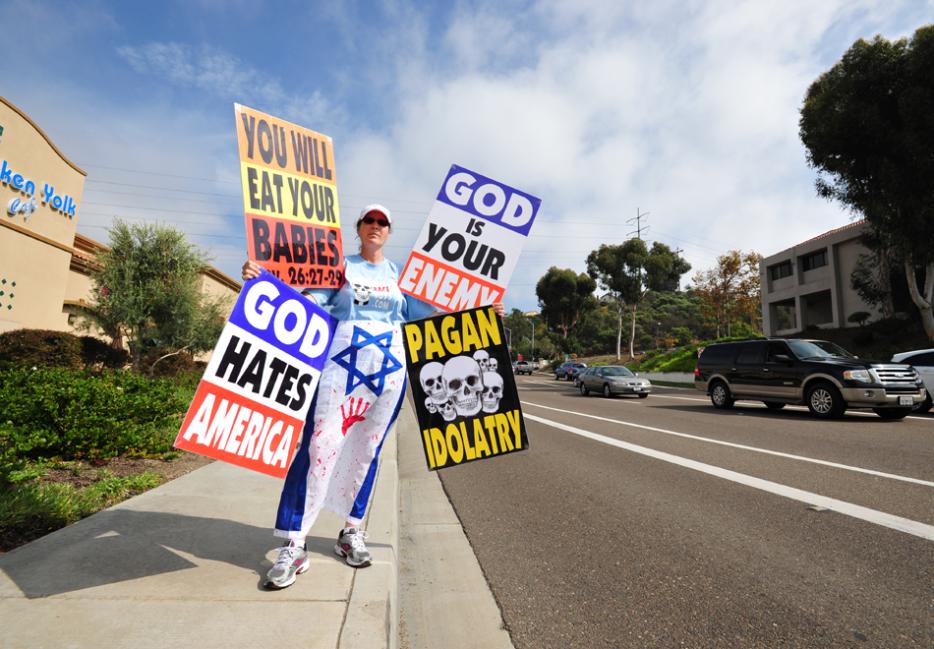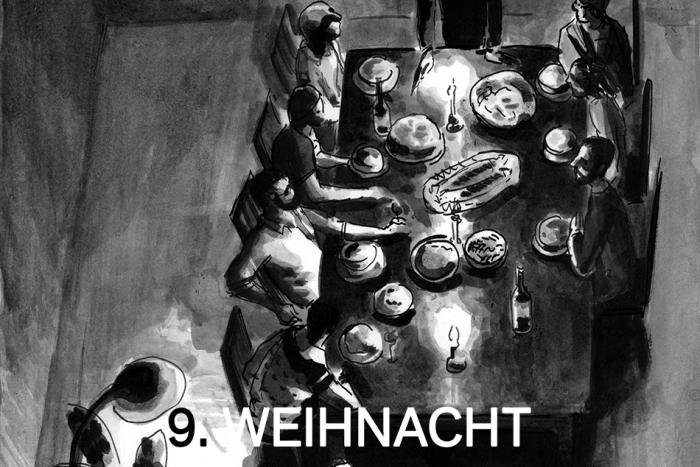I am expectantly awaiting the NOW IT CAN BE TOLD! press release following the Rev. Fred Phelps’ death, which will announce that the entire 58-year existence of his Westboro Baptist Church has been an elaborate masterpiece of interactive performance art.
Consider the multi-generational communal houses of pasty heartland hysterical fanatics. Think of the small children holding multicolored GOD HATES FAGS placards. Listen to the babbling faithful telling journalists that they celebrate every American death, whether by war or traffic accident, as a victory for God in His obsessive quest to punish those who have tolerated the existence of sodomites (and, oh yeah, Jews)—their justification for picketing at the funerals of U.S. soldiers. Look at their rough-cut DIY video collages and pop-music parodies. Could there be a better surrealist hoax?
Ryan Trecartin must be grinding his perfect teeth in envy at how brilliantly the Westboro avant-garde simulated the symptomology of spiraling postmodern American schizoculture in symphonies of inverted signifiers and bottomless anal aporias. And with more hilarious punchlines.
Caricatured corrupt preachers of course have been a staple of western and especially American vanguard art and socially critical pop culture at least since the puritan Rev. Arthur Dimmesdale’s stiff-of-dick-and-dogma portrayal in Nathaniel Hawthorne’s 1850 The Scarlet Letter.
What, after all, would have become of the entire corpus (and I use the word advisedly) of late-20th-century punk rock, heavy metal and photocopied DIY zine culture without greedy televangelists, anti-women religious-right moralists, and closeted homophobic fundies? Allow Jello Biafra to represent this wing, a privilege he’s damn well earned.
The real question becomes whether the multimedia installation Phelps made of his life achieved its goals. Aesthetically it must be counted as a triumph; socially its legacy is more ambiguous. You could certainly argue that he succeeded in throwing homophobia into its worst light and helped unite decent people in revulsion, a case best made by the WBC’s fellow-travelling satirical institution The Onion with its obituary, “Fred Phelps, Man Who Forever Stopped March Of Gay Rights, Dead At 84.”
Or else Phelps’ effect might have been to make less-psychotic figures of intolerance appear relatively reasonable. Without the genocidal rantings of the WBC and others, mightn’t we be less easily seduced when the man who now heads the Catholic Church allows that, while homosexuals are still committing mortal sin, it would be un-Christian of him to cast stones, and that maybe same-sex civil unions would be acceptable as an alternative to profaning the holy sacrament of matrimony—you know, separate but equal?
As Dan Savage pointed out on one of his recent podcasts, this is the losing side trying to name the terms of its own defeat: Perhaps before the majority of the western world woke up to the justice of true equality, queer people would have embraced civil union as a decent temporary compromise. The Catholic Church fought that idea serpent’s tooth and crucifixion nail. Now it’s offering to rewind three decades back and call it progress. It may be only the spectre of Phelps-like loathing that gives that nonsense any cred.
That is what is at stake in deciding if the WBC’s grand guignol should be granted further visibility. Lots of groups debated this week whether to mock and picket Phelps’ funeral, as he would have done to them, or to rise above and ignore it. It turns out that there will be no funeral because the WBC does not believe in “worshipping the dead.” (Or because Phelps’ death is another fake-out?) However, so far—perhaps because the factions are debating which theorists of mimesis to cite in the big reveal—it goes on with its demos.
Whether Phelps was a stealth genius of art-into-reality, a pathetic deluded sociopath, or both, the most acute note was sounded by counter-protestors at the WBC’s picket of this week’s Lorde show in Kansas City. They held a banner that simply said, with defiant dignity: “SORRY FOR YOUR LOSS.” As it was in the beginning and ever shall be, amen.






